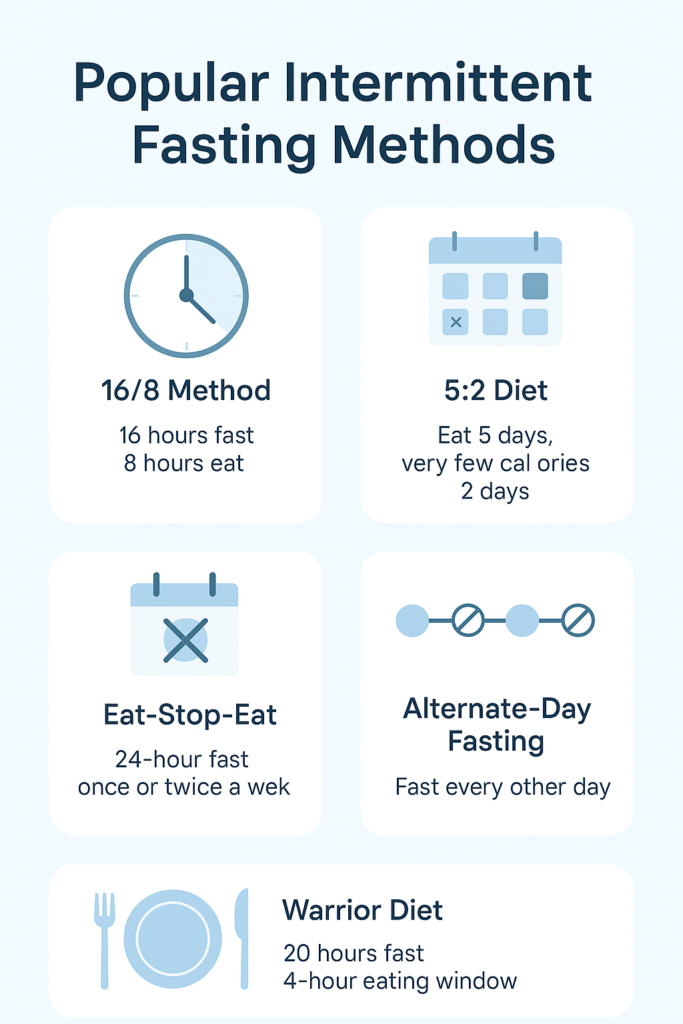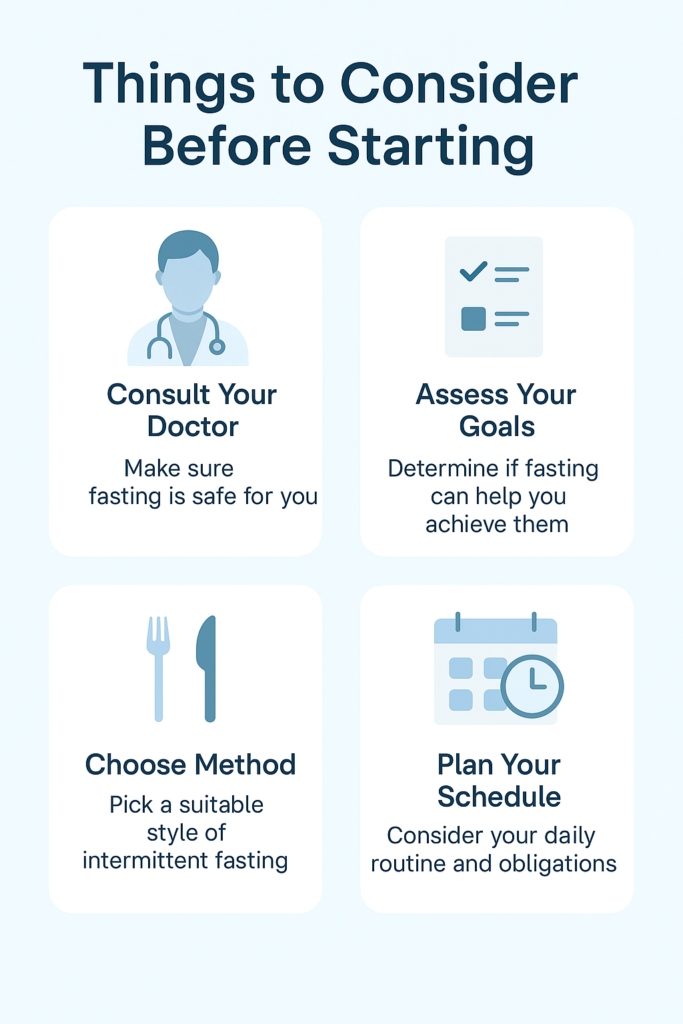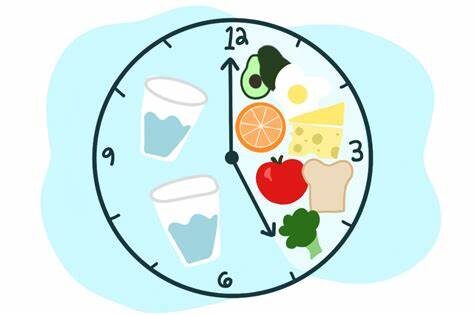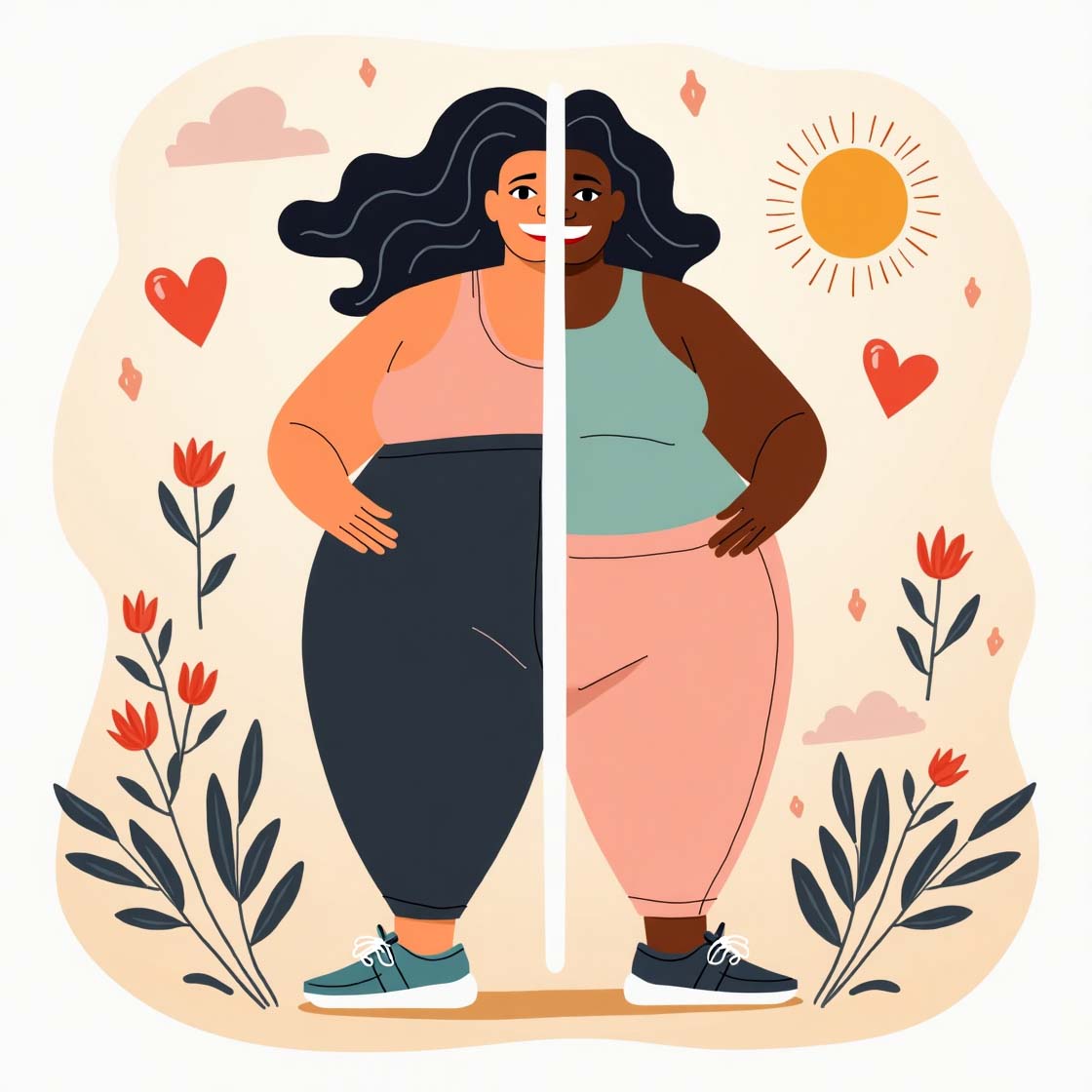Intermittent fasting (IF) is not a diet but an eating pattern that cycles between periods of eating and fasting. Instead of focusing on what to eat, it emphasizes when to eat. This method has gained global popularity for its simplicity and wide-ranging health benefits, including effective weight loss, enhanced metabolic health, and improved mental clarity.
Unlike traditional diets that may require calorie counting or food restrictions, intermittent fasting offers a more intuitive approach. Many people find it easier to follow and sustain over time, which contributes to its growing popularity.
How Does Intermittent Fasting Work?
When you fast, your insulin levels drop significantly, which allows your body to burn fat for energy. At the same time, levels of human growth hormone increase, and the body begins cellular repair processes like autophagy. These changes in hormone levels and metabolic functions are what make intermittent fasting such a powerful tool for weight management and health.
During fasting periods, your body shifts from using glucose as a primary energy source to using stored fat. This metabolic switch promotes fat loss while preserving lean muscle mass. In addition, fasting can reduce inflammation, a common underlying cause of chronic diseases.

Popular Intermittent Fasting Methods
1. The 16/8 Method
This is the most popular method. You fast for 16 hours and eat during an 8-hour window—typically from 12 p.m. to 8 p.m. This method is easy to adopt and fits well into most lifestyles.
2. The 5:2 Diet
In this method, you eat normally for 5 days a week and restrict your calorie intake to 500–600 calories on the remaining two non-consecutive days. It’s ideal for people who want flexibility in their weekly eating plan.
3. Eat-Stop-Eat
This involves fasting for a full 24 hours once or twice a week, such as not eating from dinner one day until dinner the next. It may be more challenging but can produce significant benefits.
4. Alternate-Day Fasting
You fast every other day. Some versions of this approach allow up to 500 calories on fasting days. This method has shown promise in clinical studies for weight loss and metabolic health.
5. The Warrior Diet
This approach includes fasting for 20 hours during the day and consuming one large meal at night, usually within a 4-hour eating window. It’s inspired by ancient warrior lifestyles and may appeal to those who prefer fewer meals.
Health Benefits of Intermittent Fasting
Weight Loss and Fat Loss
Fasting helps you consume fewer calories and increases your metabolic rate by up to 14%. Studies have shown that intermittent fasting can lead to 3–8% weight loss over 3–24 weeks. It also targets visceral fat, the harmful fat stored around organs.
Improved Insulin Sensitivity
Fasting can lower blood sugar by 3–6% and insulin levels by 20–31%, reducing the risk of type 2 diabetes. This benefit is particularly relevant for people with prediabetes or metabolic syndrome.
Better Heart Health
It may improve various risk factors for heart disease, such as blood pressure, cholesterol levels, triglycerides, and inflammatory markers. A healthier cardiovascular system also contributes to better overall longevity.
Enhanced Brain Function
Intermittent fasting increases the brain hormone BDNF and may support the growth of new nerve cells. It also may protect against Alzheimer’s disease and other neurodegenerative conditions.
Longevity and Disease Prevention
Animal studies show that fasting can extend lifespan. Human research indicates that fasting may reduce the risk of cancer and other chronic conditions. By reducing oxidative stress and inflammation, fasting supports healthy aging.
Scientific and Medical Support
Case Study: Obese Adults and Time-Restricted Eating
In a 2019 study published in Cell Metabolism, 19 obese adults followed a 16/8 fasting plan for 12 weeks. Participants experienced an average weight loss of 3%, reduced insulin levels, and improved blood pressure—all without changing their diet. This study highlights how simple changes in eating timing can yield measurable results.
Harvard Research
Harvard scientists found that intermittent fasting boosts mitochondrial efficiency and cellular repair, suggesting its role in aging prevention. These findings support the concept that fasting can rejuvenate cells and slow down biological aging.
WHO Perspective
The World Health Organization (WHO) supports intermittent fasting as a potential strategy for reducing obesity and preventing non-communicable diseases. A 2021 review acknowledged IF’s benefits in lowering blood glucose and promoting metabolic health. WHO encourages further long-term studies but considers IF promising when paired with balanced nutrition.
In WHO’s report titled “Obesity and Overweight,” the organization states that lifestyle interventions like time-restricted feeding and intermittent fasting could significantly reduce the global burden of obesity and its associated risks.
Nutritional Tips for Intermittent Fasting
Focus on Whole Foods
During your eating windows, prioritize whole foods—vegetables, fruits, lean proteins, and healthy fats. This supports your body with essential nutrients and keeps you full longer.
Avoid Processed Sugars
Minimize sugary snacks and refined carbs. These can spike insulin levels and work against your fasting goals.
Plan Your Meals
Prepare your meals in advance to ensure you stick to your goals. Meal prepping helps avoid impulsive eating during your feeding window.
Listen to Your Body
While some hunger is normal during fasting, you shouldn’t feel weak or dizzy. Adjust your schedule as needed and stay in tune with your body’s signals.

Things to Consider Before Starting
Who Should Avoid Intermittent Fasting?
- People with a history of eating disorders
- Pregnant or breastfeeding women
- Individuals with chronic health conditions without medical guidance
Possible Side Effects
- Hunger and fatigue
- Headaches and irritability (usually temporary)
- Sleep disturbances in some people
How to Get Started
Ease Into It
Start with a 12-hour fast and gradually increase your fasting window as your body adapts. This gradual transition can help reduce side effects.
Stay Hydrated
Drink plenty of water, and consider herbal tea or black coffee to suppress hunger. Staying hydrated is key to managing hunger and maintaining energy levels.
Choose Nutrient-Rich Foods
During eating windows, focus on balanced meals rich in lean protein, healthy fats, and fiber. These support satiety and stable blood sugar levels.
Be Consistent
Success with intermittent fasting comes from long-term consistency rather than short-term perfection. Aim to make it a sustainable part of your lifestyle.
Pay Attention to Your Body
Monitor how you feel and adjust your fasting schedule accordingly. Seek medical advice if needed, especially if you experience unusual symptoms.
Frequently Asked Questions (FAQs)
Is intermittent fasting safe?
For most healthy adults, yes. However, consult a healthcare provider before starting if you have any underlying conditions.
Can I drink beverages while fasting?
Yes, as long as they are non-caloric—like water, black coffee, or tea.
Does intermittent fasting slow metabolism?
Short-term fasting may actually boost metabolism slightly rather than slow it.
What counts as breaking a fast?
Any caloric food or drink breaks a fast. Stick to zero-calorie beverages to maintain your fast.
Can intermittent fasting help with belly fat?
Yes. Studies show IF is especially effective at reducing visceral fat, which accumulates in the abdominal area.
Conclusion
Intermittent fasting offers a simple yet powerful approach to health and weight loss. Backed by research from institutions like Harvard and WHO, it supports fat loss, improves insulin sensitivity, enhances brain function, and may even extend lifespan.
Whether you’re new to fasting or looking to optimize your existing routine, it’s essential to choose a method that aligns with your lifestyle and goals. Combine intermittent fasting with whole, nutritious foods and regular physical activity for the best results. As the science continues to evolve, IF stands out as a flexible and promising strategy for long-term health.





